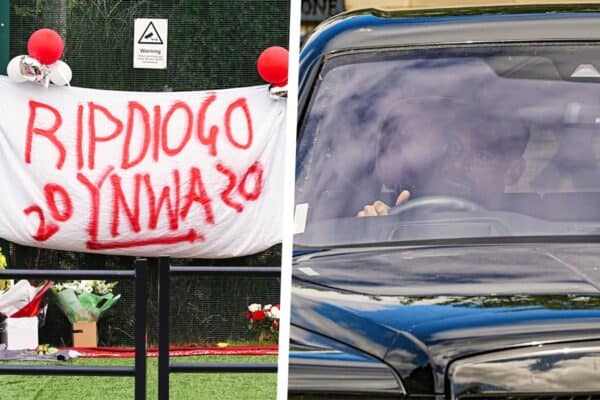It’s easy to criticise Steven Gerrard at the moment. After all, he’s having the worst season of his career, in an amazingly underwhelming campaign for Liverpool, having come so close to their first Premiership title last time out.
Meanwhile, more persistent doubts remain about his true ability as a footballer.
The master of modern football tactics, Arrigo Sacchi, once said that Gerrard ‘lacks what I call knowing-how-to-play football’, describing him as ‘a great footballer, but not a great player’.
The knives were out yet again after Liverpool’s 2-1 defeat at Old Trafford at the weekend. “His performance slumped again” according to The Times, whilst Daniel Taylor at the Guardian said Liverpool’s defeat came about because “Fernando Torres was isolated”, going on to say that “Gerrard had a poor game”.
But let’s look at this objectively. Firstly, take Steven Gerrard’s position. Since he has played the majority of his career as a midfielder, and in recent years has played behind the frontman in a 4-2-3-1, it’s tempting to think of Gerrard always as an attacking central midfielder. But this is not the case in many games, and at Old Trafford his role was not as an onrushing midfielder, but as an auxiliary forward in a 4-4-1-1 or almost 4-4-2 shape. Watch the game again and you’ll find Gerrard playing on a similar ‘line’ to Torres – indeed the Spaniard often drops behind Gerrard when pressuring the man on the ball, leaving Gerrard as the highest Liverpool player up the pitch.
Yet Gerrard is still seen as a central midfielder. And so when observers reflect on where Liverpool lost the game, and identify losing the midfield battle as the key reason – a fair analysis – it is Gerrard that gets the blame. Taylor’s piece claims Torres struggled as he had ‘too little support’ throughout the game, which is understandable considering how deep Liverpool’s midfield was, but the same could be said of Gerrard, considering he too was playing as a forward. It seems bizarre to sympathise with Torres in this regard, and not with Gerrard.
In a way, Gerrard was a victim of his early success in the game. The opening ten minutes was an exciting, frantic affair that looked set to produce a classic. And yet the final 80 minutes produced an awful game. Why? The main reason was that United started the game with a 4-1-4-1 formation that left Michael Carrick on his own in front of the defence. When Gerrard twice came deep, got the ball and ran at the United defence early in the first five minutes (on the second occasion beating Ferdinand, slipping the ball to Kuyt who crossed to Torres for the opener), Ferguson reacted. He shifted Fletcher deeper, alongside Carrick, meaning Gerrard would be up against two Manchester United players when he dropped deep, making it extremely difficult for him to find space.
In that sense, the fact that both sides played with two ’sitting’ midfielders seeking to nullify the one opposing ‘creative’ midfielder/deep forward (Gerrard and Park) was what produced such a tight game, which is exactly what Benitez would have wanted.
And yet still, in a game of only six clear-cut chances, Gerrard produced two of them. When Arsenal played Dennis Bergkamp ‘in the hole’ in a 4-4-1-1 shape, no-one expected him to run the midfield. That was not his job. His job was to create goalscoring opportunities for his strike partner, and in the same role, that is what Gerrard did today. Two bursts down the right-hand channel resulted in cutbacks for Torres, who completely fluffed his lines. On 62 minutes, his awful first touch sent the ball up in the air, allowing Ferdinand to clear – whilst on 90 minutes, his horrendous miskick only looped up into the air to Yossi Benayoun, whose header was saved.
Therein lies the problem with assessing the performance of creative midfielders and attackers – they will always be judged according to whether the strikers manage to convert the chances they create. On another day, Torres would have converted at least one, if not two, of those very easy chances, and Liverpool would have recorded a surprise 2-3 victory. Gerrard would have two assists and played a big role in another, and the Gerrard-Torres partnership would have been hailed yet again.
Gerrard’s body language, fitness, mentality and long-term future might all be up for question. But let’s not unfairly criticize him for this performance. He was the one Liverpool outfield player who did what he was in the side to do – and that job was to create chances, not to run the midfield.
 For more tactical analysis visit to Zonal Marking blog
For more tactical analysis visit to Zonal Marking blog





















Fan Comments